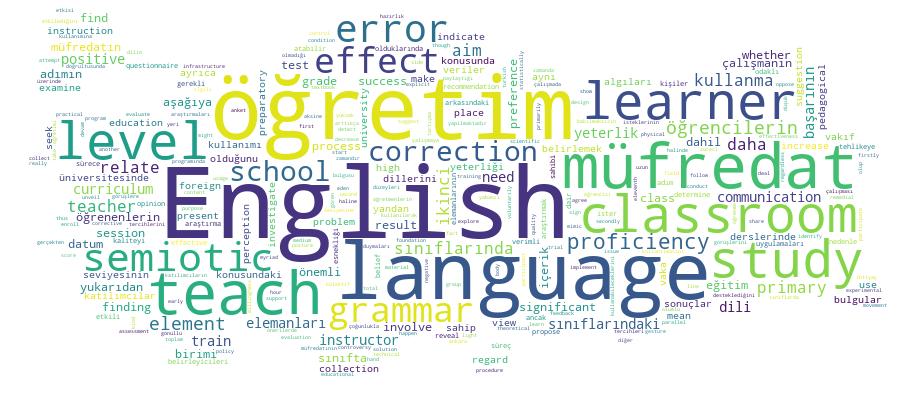Karaazmak, Fulda
Loading...
Profile URL
Name Variants
Job Title
Öğr. Gör.
Email Address
fuldakaraazmak@cankaya.edu.tr
Main Affiliation
Yabancı Diller Bölümü
Status
Current Staff
Website
ORCID ID
Scopus Author ID
Turkish CoHE Profile ID
Google Scholar ID
WoS Researcher ID
Files
Sustainable Development Goals
13
CLIMATE ACTION

0
Research Products
8
DECENT WORK AND ECONOMIC GROWTH

0
Research Products
3
GOOD HEALTH AND WELL-BEING

0
Research Products
15
LIFE ON LAND

0
Research Products
17
PARTNERSHIPS FOR THE GOALS

0
Research Products
14
LIFE BELOW WATER

0
Research Products
4
QUALITY EDUCATION

2
Research Products
11
SUSTAINABLE CITIES AND COMMUNITIES

0
Research Products
6
CLEAN WATER AND SANITATION

0
Research Products
10
REDUCED INEQUALITIES

0
Research Products
9
INDUSTRY, INNOVATION AND INFRASTRUCTURE

0
Research Products
12
RESPONSIBLE CONSUMPTION AND PRODUCTION

0
Research Products
2
ZERO HUNGER

0
Research Products
1
NO POVERTY

0
Research Products
7
AFFORDABLE AND CLEAN ENERGY

0
Research Products
5
GENDER EQUALITY

0
Research Products
16
PEACE, JUSTICE AND STRONG INSTITUTIONS

0
Research Products

This researcher does not have a Scopus ID.

This researcher does not have a WoS ID.

Scholarly Output
6
Articles
6
Views / Downloads
407/287
Supervised MSc Theses
0
Supervised PhD Theses
0
WoS Citation Count
1
Scopus Citation Count
0
WoS h-index
1
Scopus h-index
0
Patents
0
Projects
0
WoS Citations per Publication
0.17
Scopus Citations per Publication
0.00
Open Access Source
4
Supervised Theses
0
Google Analytics Visitor Traffic
| Journal | Count |
|---|---|
| International Journal of Curriculum and Instruction | 1 |
| Journal of Language and Linguistic Studies | 1 |
| Kastamonu Eğitim Dergisi | 1 |
| Selçuk Üniversitesi Edebiyat Fakültesi Dergisi | 1 |
| Uluslararası Sosyal Araştırmalar Dergisi / The Journal of International Social Research | 1 |
Current Page: 1 / 1
Competency Cloud


